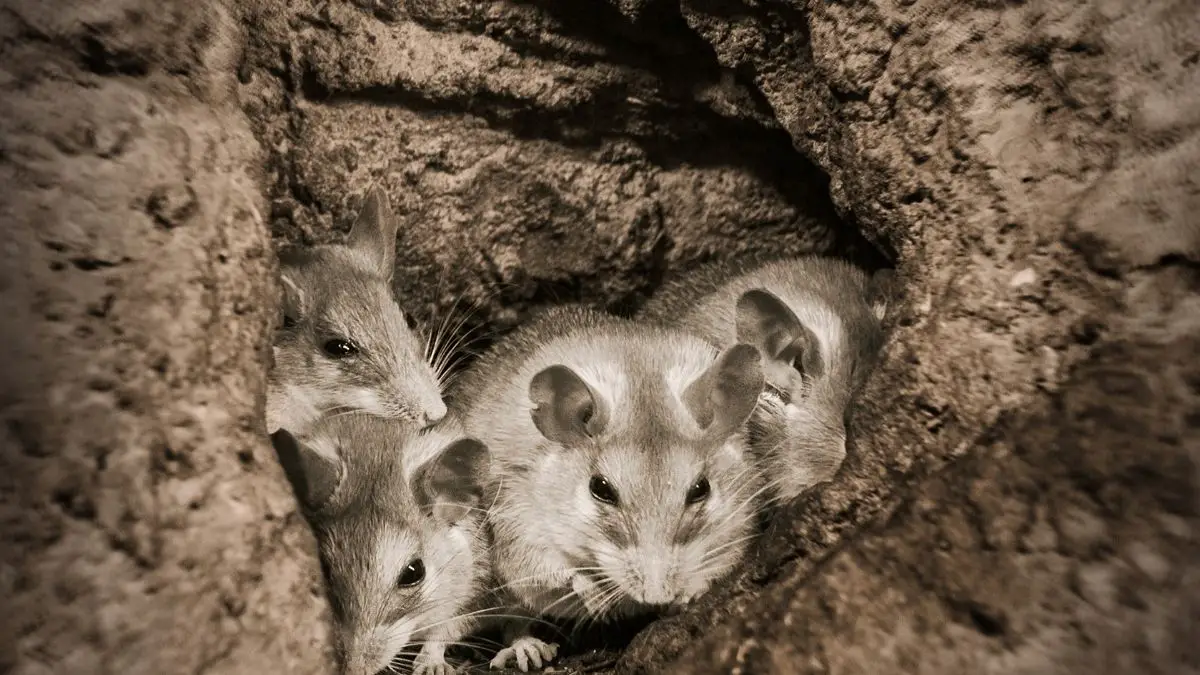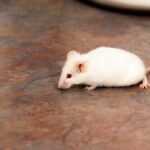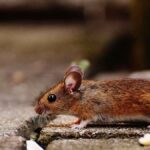A mouse infestation is a concern.
They are incredibly destructive and can do severe structural damage by gnawing at wood, building nests, and chewing through electrical wiring.
Oh, and they can also carry diseases!
There is no doubt about it. Mice are dangerous, so you should look to get rid of them ASAP. One way you can achieve that is by finding out what mice hate.
Making your home unlivable (for the mice) is a sure way to get them out. To help you do that, here’s a list of the things mice are afraid of.

Do Mice Hate the Following?
1. Cats

Mice absolutely hate cats. It shouldn’t come as a surprise since cats (the predator) like to catch and eat mice (the prey). Having a cat does help to keep mice away.
Studies have shown that mice have evolved receptors that help them detect chemical signals from other animals.
Mice can detect unique proteins in cat saliva, which instinctively causes them to react in fear.
You can also get rid of mice by using kitty litter.
2. Dogs

Mice hate dogs, but not as much as they hate cats. Dogs scare small animals and have a strong hate/love relationship with cats.
Researchers have studied the behavior of several species of African mice. They found that while rodents stayed away when domestic pets were present (dogs or cats), they returned to a home sooner if only a dog were around.
The rodents will not return to a home if a cat is around. Interestingly, they also found the deterring effect of dogs was more significant when cats were present.
This is likely because the instinctive dislike between dogs and cats creates a hostile environment that mice dislike.
3. Noise
Mice are afraid of noise, but usually only if it is presented at high frequency. Normal noise (what you can hear with your ears) doesn’t bother them much unless it’s from predators like dogs, cats, and owls. High-frequency sound waves, on the other hand, are irritating and uncomfortable. So much so that they may convince the critters to change location.
Unfortunately, however, mice are highly adaptable.
They will eventually grow accustomed to the noise. This makes it hard to use sound as a deterrent. Furthermore, sound may not penetrate through walls and furniture. The mice will learn this and use it to their advantage.
4. Human beings
Mice are more afraid of human beings than human beings are scared of them.
They may invade your home and steal your food, but they will scamper away at the slightest sign you’re home. Mice avoid contact with humans and always run away if it is possible.
However, putting one into a tight spot may turn on you to defend itself. For this reason, you shouldn’t try to handle them.
5. Light
Although mice are not entirely nocturnal, they are more active at night than during the day. This is because they are sensitive to bright lights and have terrible eyesight.
Mice also prefer darkness because it helps them avoid large animals and predators, which are more active during the day.
Bright lights make mice feel vulnerable, so they will avoid them at all costs.
6. Vinegar

Mice will avoid the smell of vinegar, provided it is strong enough. Vinegar has a strong, irritating odor, so if used in places like pipes and u-bends where it won’t dissipate quickly, it will deter the mice.
They would find it stingy and unpleasant. White vinegar is the strongest, so it should be a helpful mouse deterrent. There are a few ways you could use it.
(a) Put a palmful of cotton balls in white vinegar and let them soak. It would be best if you placed them in the areas you’ve seen the mice.
(b) Spray: make a 1:1 mixture of white vinegar and water. Add a teaspoon of salt and mix thoroughly. Next, apply it to the places you’ve seen the mice or evidence of their activity like chewed items, feces, or urine.
While I am on the subject of natural ways to keep mice away, some folks have had success using peppermint oil in the same way as above. Unfortunately, I have not had much success using it to get rid of mice, so I don’t use it as a mouse repellent. When using essential oils to keep mice away, you should use them in confined spaces to keep the odor strong, including peppermint oil.
7. Bleach
Mice don’t like bleach at all. You’ve probably used bleach in some capacity, whether for laundry or cleaning. If you’ve been in contact with it for even a brief time, you know how terrible it is.
The odor is so strong, and the fumes hurt your eyes. As a mouse has an excellent sense of smell, it will help deter them.
It may burn your skin if you’re unlucky enough to touch it.
Bleach has a powerful smell. Humans can’t stand it for long, and neither can mice. Instead, they find its smell so undesirable they’ll do anything to avoid it… Bleach will repel mice!
It would be best if you mixed it with water so your home doesn’t smell so bad, then apply it to any areas you suspect mouse activity. Leave a path the mice can use to leave your home. If you spray everything and don’t leave any clear path for the mice to escape, they’ll stay in your house longer.
Bleach is an effective repellent, and it is also a disinfectant – it destroys harmful viruses and bacteria. Using bleach will help eliminate any microbes in mice’s urine, droppings, and blood.
Note: Household bleach can be effective, but you should be cautious when using it. Bleach exposure can cause health issues such as irritation in your mouth, lungs, eyes, and skin. Always follow the instructions on the bottle.
Bleach is also good for cleaning up when you confirm that all the mice have gone.
8. Steel wool
Are mice afraid of steel wool? Not really.
That said, steel wool will deter mice from going through cracks and crevices. But, unlike wood and other materials, mice find it hard to chew through, so it is a good deterrent.
It is most effective when sealing small holes that mice like to crawl through.
9. Rats

Rats will kill and eat mice, so the two species aren’t friends. The practice, known as muricide, has been studied for decades.
There are lots of conflicts when the two species interact. For example, rats are more muscular and aggressive than mice, so they almost always emerge victoriously.
10. Squirrels
Mice fear squirrels. Although they’re primarily herbivorous, squirrel diets differ among species. They like to eat nuts, insects, fruits, mushrooms, and dried corn. However, they will eat young birds, eggs, and small mammals in times of scarcity. Squirrels do eat meat if they need to!
Squirrels have been observed killing mice, rats, and birds.
It seems unlikely that squirrels are predators, but it is true. They tend to store food in holes or underground for the winter when food is hard to come by. Unfortunately, by early spring, those buried nuts start sprout, so the squirrels must look for food elsewhere. They will eat anything they can find – small rodents aren’t exempted.
Conclusion
You must be persistent in applying the deterrents we’ve discussed to give yourself the best chances of success.
It may take a while, but if you’re patient, you will get results. So if you want to get rid of mice in your home, you should use this knowledge.
If you are worried things aren’t working out, contact a pest control professional for help.
Good luck!








